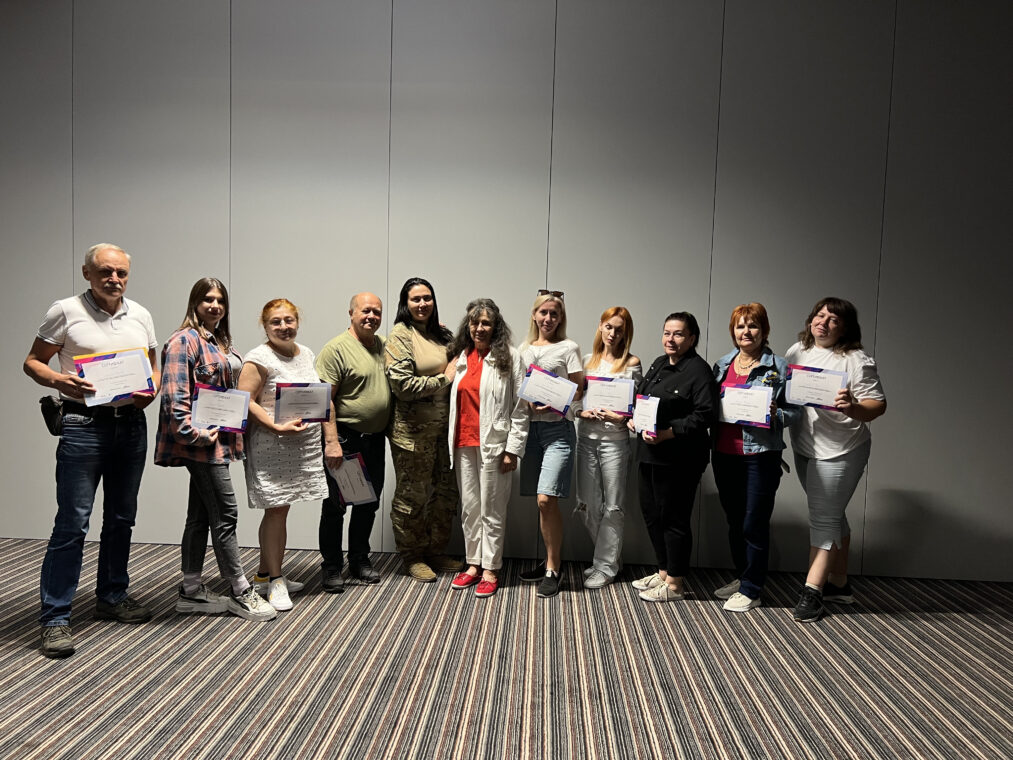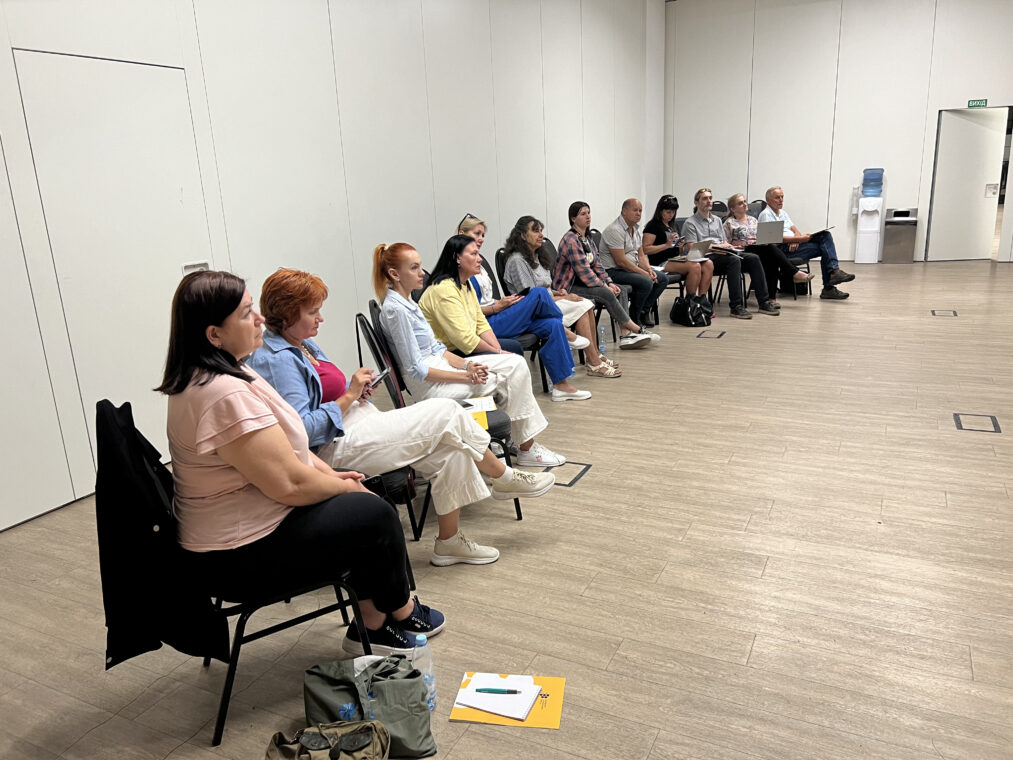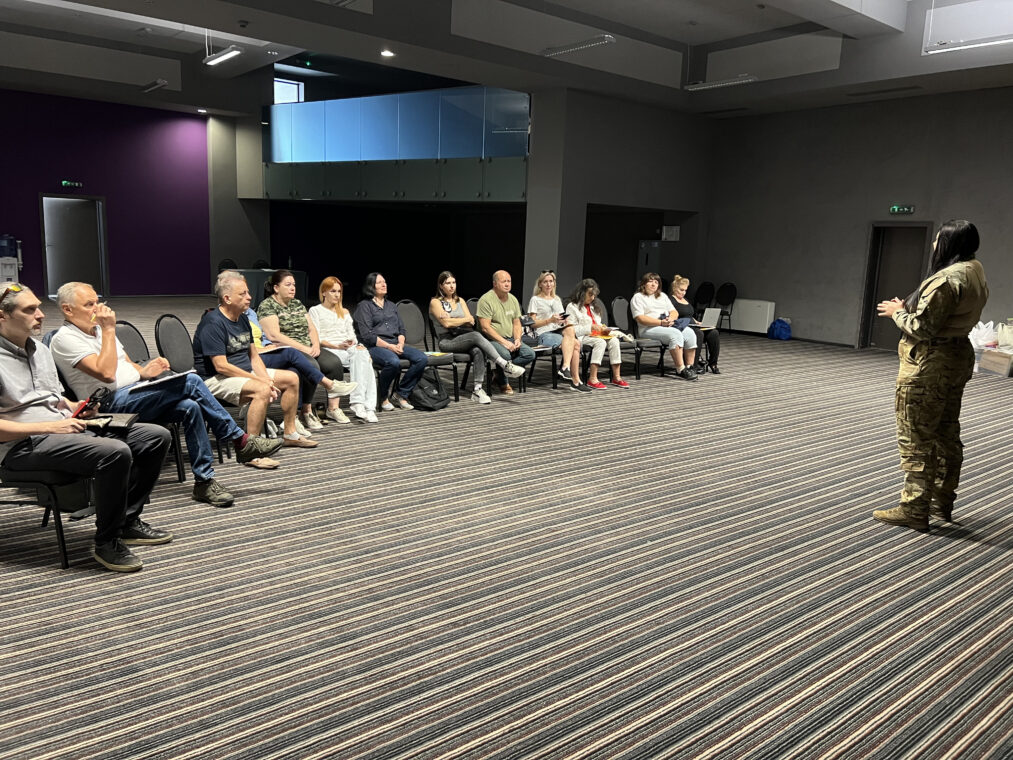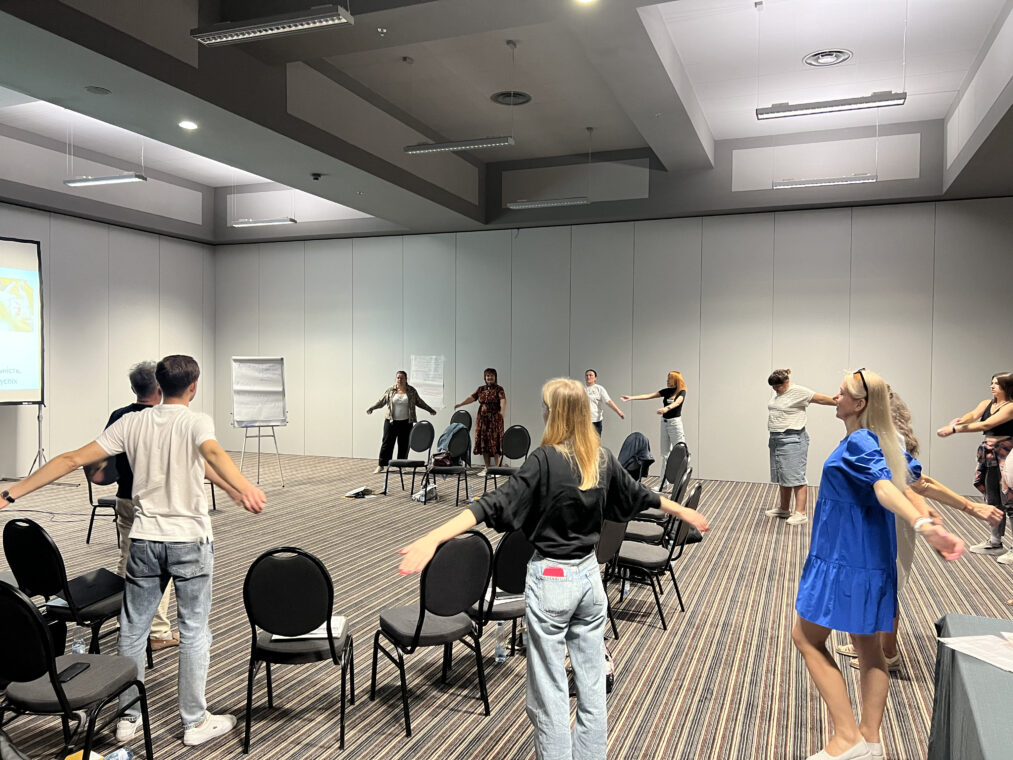
On September 12-14, 2024, a training for Ukrainian journalists was held to discuss working in wartime. The event brought together leading journalists, editors and media experts who shared their experience of working in the difficult conditions of martial law. The event program included panel discussions, workshops and the exchange of practical advice to help journalists work more effectively in wartime.

Ivan Antypenko, one of the event's trainers, noted that most journalists had no experience of working in wartime before the armed conflict in Ukraine. "Few of us learned to work in wartime conditions. But for the third year in a row, Ukrainian journalists have been dealing with military topics and working in the frontline areas. So it's good that we have the opportunity to hold such meetings to exchange experience. Because this experience is really different in the regions of Ukraine, from the situation at the front to obtaining work permits," the journalist said.

Journalist Artem Perfilov also joined the discussion, emphasizing the importance of media work in times of war and the need to share experiences among colleagues. "I would like everyone who writes, shoots and distributes materials about the war in Ukraine to think about the importance of their work. Colleagues, I am sure that each of us has experience that can and should be shared. Come and let's improve our work," he urged.
The event paid special attention to the personal aspects of journalists' work in times of war. Natalia Umerenkova, a project psychologist, emphasized the importance of preserving humanity in professional activities: "Journalists are first and foremost people, and only secondarily professionals. And as people, we all cannot stay away from complex and sensitive stories. A journalist has an additional burden during such work: how to tell a person's story to the world in a way that draws attention to it, how to protect a person from retraumatization, and how to remain in a state of emotional balance." According to her, these issues are especially relevant during the war and require constant attention and discussion.

Invited experts from the Realist Security Hub prepared journalists to work in high-risk environments, focusing on several key areas:
1/Risk assessment: Realist Security Hub conducted a thorough analysis of potential threats to journalists working in frontline areas or covering military conflicts. This included an assessment of physical, psychological and informational risks that may arise in the course of their professional duties.
2/ Safety recommendations: Based on the analysis, safety recommendations for journalists were developed, including practical advice on personal safety, behavior in the conflict zone, preparation for working in extreme conditions, and approaches to reducing risks to their own lives and health.
3/ First aid: bleeding control, airway management, hypothermia, etc.
Realist Security Hub experts helped create a comprehensive system of measures to ensure the safety of journalists working in difficult and dangerous conditions, increasing their readiness to perform their professional tasks even in the most difficult circumstances.

The event also included practical trainings on covering military conflicts and working in frontline areas, as well as safety tips for journalists working in high-risk areas. Participants shared real-life cases and solutions that helped them to do their job effectively in difficult conditions.

The Center for Media and Digital Literacy of the Institute for Media and Communication Studies at the Free University of Berlin (Germany) became a partner of the Academy of Ukrainian Press in the implementation of the training project.
* The Center for Media and Digital Literacy (CeMIL) at the Freie Universität Berlin is part of the Institute for Media and Communication Studies and has state-of-the-art expertise in the field of media literacy. He has many years of experience in conducting trainings and research with journalists and communication scholars from Eastern European countries. He has also successfully managed other projects under previous rounds of the Eastern European Partnership Programs.